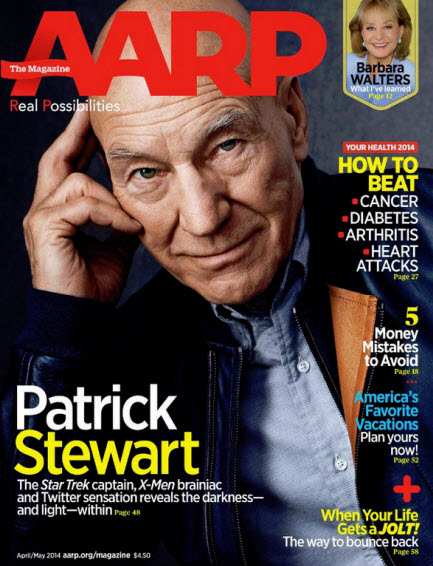 “Read like your enemies will.”
“Read like your enemies will.”
That’s the massively good bit of advice from the talented brain of Bob Love, AARP’s magazine editor. Love gave the keynote address at last month’s Association Media Summit, as quoted in Folio.
Love started the speech with the obligatory and self-deprecating joke but soon got into the meat of what the audience wanted to hear: how he continues to make the magic over his long and storied career. For the past four years, Love has served as editor-in-chief for AARP the Magazine and The Bulletin, the two print titles for the 38-million member organization.
“I am part of a great, energetic team of editors, writers, designers, photo editors, production slave drivers and many others who work to keep up that trust every day,” he notes. “And like many of you who work for non-profits, we have a mission: Ours is to help Americans live the best lives they can as they grow older — to put our shoulders to the wheel every day to change America’s attitudes about aging.”
Circulation is up at The Magazine (to 22.5 million), as is their ad revenue. This is a brand that absolutely believes in the power of print to engage their market. And while they, like all publications, are dealing with challenges like rising costs and busy readers, AARP has managed to nail down a level of trust that is awe inspiring in this industry.
According to Love, it starts with getting all the facts right.
“As a fact checker at New York magazine in the early 1980s, I drove around Manhattan all night in a broken-down, death-trap of a Ford Pinto with my friend Deborah to check which stores were really open 24 hours, as they claimed,” Love shared. “It was for a story called “New York All Night.” Fully caffeinated and heavily nicotined, I would bound out of car and sprint into delis and groceries and bodegas, asking in a loud voice: ‘You open all night???’”
This kind of insistence on the facts – fake news is just not a thing here, apparently – is one of the reasons why they are going strong 60 years on. And he has advice for publishers who would look to emulate that success:
“Read like your enemies will, search for contradictions, mistakes, errors, hidden agendas, and lack of transparency. Hire great editors. They’re out there.”
Being trusted starts with being trustworthy, and while publishers can’t control everything, they certainly can control that.
